Logistics Brigade
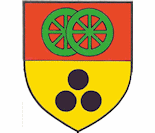 Logistics Brigade was established on the basis of the order of the Minister of Defense Nr. 30 dated 25/01/2007. This unit is created on the basis of departments Brigade's Brigade Supply and Transport. Supply Brigade functioned as such since September 2003. This unit was established on the basis of supply njėsisive (Army Supply bases) Tirana, Elbasan, Berat, Rreshen. Of these units inherited the infrastructure and personnel as well as headquarters units and units of dependence. In its performance of this unit has kept the main burden of supply units and units of the Armed Forces.
Logistics Brigade was established on the basis of the order of the Minister of Defense Nr. 30 dated 25/01/2007. This unit is created on the basis of departments Brigade's Brigade Supply and Transport. Supply Brigade functioned as such since September 2003. This unit was established on the basis of supply njėsisive (Army Supply bases) Tirana, Elbasan, Berat, Rreshen. Of these units inherited the infrastructure and personnel as well as headquarters units and units of dependence. In its performance of this unit has kept the main burden of supply units and units of the Armed Forces.
Transport Brigade was established on the basis of transport battalion created in 1980. Brigade until 2000 has been an autonomous unit of General Staff of the Armed Forces. The activity of this unit to solve transport tasks except transport duties with the FA support, features in transporting personnel, materials, displaced during the war in Kosovo in 1998-1999. In 2000 it became part of the Logistics Support Command. Transport Brigade has taken an active part in coping with civil emergencies, especially during autumn-winter of 2002 for transportation of relief material to help the community blocked by rainfall and snow, during flooding in Lezha, Berat, etc.. In 2003, two battalions reorganized transport composition and a maintenance company. In the year 2007 was suprimua Transport Brigade, a battalion spent its dependence of the Logistic Brigade.
Magazinon Logistics Brigade, maintains, performs technical services, administers and supports the Armed Forces of supply, transportation and field services in peacetime, crisis and war.
- Supports units of the Armed Forces units with materials and equipment according to classes of supply.
- Supports the transport activities of the departments operations units of the Armed Forces.
- Maintains and repairs equipment means ground level III and IV of the Armed Forces.
- Manages, administers arms-ammunition stocks that are extremely organikės and lost settings and materials stocks have value use.
- Provides complete with weaponry, ammunition, and scales manages reserves the tasks of the Armed Forces.
- Makes colaudation and technical control of transport vehicles of the Armed Forces.
- Perform operations to clean the infected areas by explosives, destruction of surplus ammunition or who have lost the technical parameters.
- Makes logistical disposal of surplus ammunition and lost settings.
- Makes reception, storage, management and distribution colaudation schedule imported goods.
- Supports the transport structures of central government bodies and local in the case of civil emergencies.
- It makes the discovery, identification, determination of the variety and risk assessment in the field of munitions and explosives.
- Monitors facilities and departments of FA units, controls in view of MADM facilities colaudation vendkomandat and chemical detection devices and radiation.
- Supply Battalion - Batalioni i Furnizimit Supply Battalion provides supply support for units of the Armed Forces under classes of supply in peacetime, crisis and war.
- Transport Battalion - Batalioni i Transportit Transportation Battalion supports transport of the Armed Forces in peacetime, crisis and war.
- Battalion Ammunition - Batalioni armatim-municionit Armament-ammunition battalion carries out the management, preservation, maintenance, management of weapons, ammunition, vehicles and stocks that are extremely structure of the armed forces and parameters stripes.
- Repair Battalion Level III-IV - Batalioni i Riparim- Mirėmbajtjes e III-tė e tė IV-tė, Repair-Maintenance Battalion, realizes direct support and general facilities to units of the Armed Forces, with maintenance and repair specializing in level III and IV, the ground equipment in peacetime, crisis and war .
- Central Laboratory of the FA - Laboratori Qendror i Forcave te Armatosura Central Laboratory of the Armed Forces realizes determining chemical agents, radioactive and bacteriological war-field, environmental monitoring, analysis means of defense against chemical, fuel, ammunition, food, and clothing. Bashkėvepron me Pushtetin Vendor ne rastet e incidenteve industriale e toksike. Interacts with local governments in cases of toxic industrial incidents. April 2007 LQFA accredited by the Accreditation Directorate, for the execution of about 80 parameters, to chemicals, munitions, food and fuel.
- Special Group Destruction of explosives and munitions (AEM) - Grupi Special i Asgjėsimit me Eksploziv te Municioneve Special Group with Explosive munitions destruction makes cleaning infected areas with unexploded munitions, EOD response to events, takes part in the destruction of surplus ammunition logistics posed by the restructuring of the Armed Forces and the parameters of engagement.
With bilateral and multilateral assistance, the Ministry of Defense is working to reduce the vast amounts of excess weaponry and ammunition that litter the country and pose a significant public hazard and proliferation risk. The Albanian Government and the international community are working together on a project that will make Albania a mine-free country by 2010. Most high- and medium-priority mine clearance has been completed in the mined areas of northeast Albania, a legacy of the 1999 Kosovo crisis. However, a significant amount of unexploded ordnance remains to be demilitarized in the country.
Over a span of three years, Albania’s landmine and explosive remnants of war (ERW) contamination increased due to internal and external strife. In 1997 the central regions of Albania were emplaced with mines, ERW, and abandoned ordnance, and military depots were looted during a period of civil disorder. Landmines and unexploded ordnance (UXO) were also emplaced by Yugoslavia in the northeast during a conflict with neighboring Kosovo between 1998 and 1999.
In FY 2008 the Bureau of Political-Military Affairs’ Office of Weapons Removal and Abatement (PM/WRA) in the U.S. Department of State provided $2,021,775 to fund continued clearance work by DanChurchAid. During these clearance and survey operations, one anti-tank mine and 264 anti-personnel mines were destroyed while 812,771 square meters of land were released for use. Similarly, $529,000 was provided to the national nongovernmental organization Victims of Mines and Weapons Association–Kukes for mine risk education and victim-assistance projects in the northeast districts bordering Kosovo.
In addition to its humanitarian mine-action activities, PM/WRA also responded quickly to the explosion that occurred in the ammunition facility in Gërdec village in March 2008. This catastrophic event destroyed over 400 homes, killed 26 people, wounded another 300, and simultaneously littered a large area of the surrounding countryside with dangerous munitions. In response to a request from the government of Albania, PM/WRA , acting through the International Trust Fund for Demining and Mine Victims Assistance, provided an additional $2 million for the Gërdec munitions clean-up, and another $137,800 for Gërdec-related ERW risk-education and victim assistance.
In spite of the extremely disruptive nature of the Gërdec explosion, the leadership of the Albania Mine Action Executive was able to keep the 2009–10 mine-action plan on track while at the same time providing valuable assistance to the Albanian Ministry of Defense. They also supported international explosive-ordnance disposal teams conducting the Gërdec clean-up operations, which continue to be funded by PM/WRA. It was expected that Albania will achieve mine impact-free status during the 2009 or early 2010 demining season.
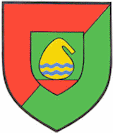 |
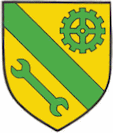 |
| Laboratori Qendror i FA Central Laboratory of the FA |
Baza e Logjistikės e Mirėmbajtjes Logistics Base Maintenance |
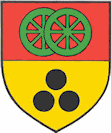 |
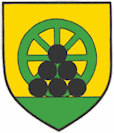 |
| Brigada e Furnizimit Brigade Supply |
Batalioni i Furnizimit (KL) Supply Battalion (KL) |
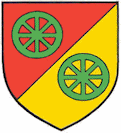 |
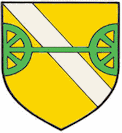 |
| Brigada e Transportit Transport Brigade |
Batalioni i Transportit Transport Battalion |
|
NEWSLETTER
|
| Join the GlobalSecurity.org mailing list |
|
|
|

